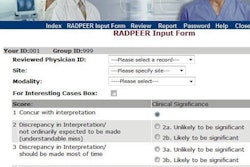Republican leaders of the congressional committees in the U.S. House of Representatives overseeing health issues criticized the U.S. Department of Health and Human Services (HHS) about stage 2 meaningful use (MU) criteria for the adoption of electronic records, and asked that incentive payments be suspended.
Chairmen of the House Committee on Ways and Means and its subcommittee on health, and the Committee on Energy and Commerce and its subcommittee on health, told HHS Secretary Kathleen Sebelius in an October 4 letter that they believe the weakness of the meaningful use stage 2 final rule will result in "a less efficient system that squanders taxpayer dollars and does little, if anything, to improve outcomes for Medicare."
Reps. Dave Camp (R-MI), Wally Herger (R-CA), Fred Upton (R-MI), and Joe Pitts (R-PA) used a reduced electronic prescribing threshold (from 75% in stage 1 to 50% in stage 2) as an example of how the stage 2 rules ask less of providers and do less for efficiency. They criticized the fact that stage 1 final rules require providers to test the ability to exchange information with other providers, while stage 2 eliminates the requirement.
The letter goes on to state that after an investment of nearly $10 billion and more than four years of work by the HHS and the healthcare industry, the U.S. is no closer to healthcare records interoperability.
The House committee leaders urged HHS to rethink its strategy relating to meaningful use criteria and instead focus on the goal of making healthcare delivery more efficient and affordable.
They urged HHS to do the following:
- Immediately suspend the distribution of financial incentives and prolong penalty dates relating to meaningful use adoption until the agency is able to promulgate universal interoperability standards.
- Significantly increase the meaningful use requirements.
- Take steps to eliminate the subsidization of business practices that block the exchange of information among providers.
As a call out in support of the use of computerized provider order entry (CPOE) technology for radiology exams, these congressional leaders referenced the meaningful use requirement that CPOE only needs to be used 30% of the time as "woefully inadequate."
They requested HHS to change the course of direction of the meaningful use incentive program, stating that it "appears to be doing more harm than good." It is critical for HHS to do everything possible to advance interoperability and meaningful use of health information technology not just in name only, the letter concluded.
The letter may be accessed here.



















